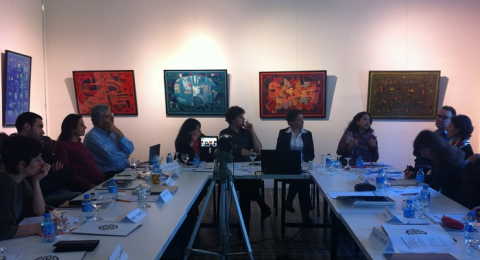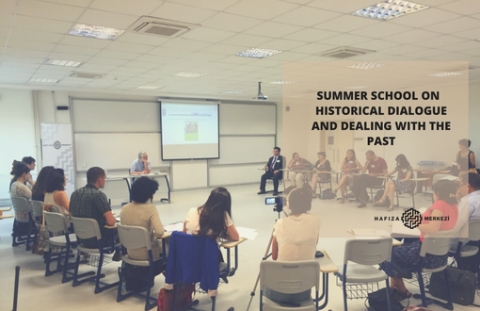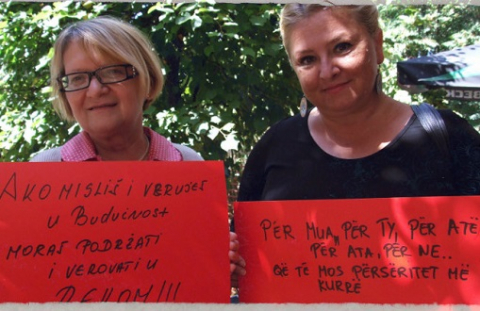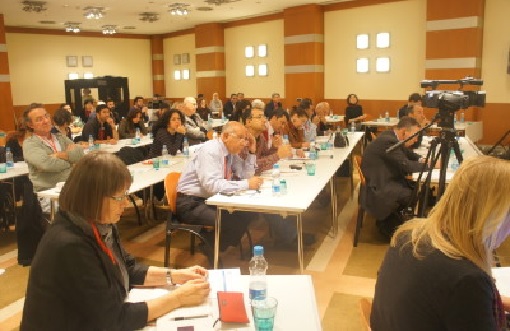
Truth commissions: Turkey in light of world experience
Truth commissions are one of the mechanisms implemented in periods of transition to democracy after grave violations of human rights that resulted from times of war, genocide, and dictatorship. The basic goals of truth commissions are to aid society in learning the truth, implement reforms, establish justice, rehabilitate victims, and strengthen mutual understanding. To date, truth commissions have been undertaken for particular times in various areas of the world.
On October 15-16, 2011, under the umbrella of Anadolu Kültür, we organised a meeting on the subject of "Truth Commissions: Turkey in Light of World Experience" in Istanbul, which was aimed at different countries' experiences with truth commissions and opening a discussion on truth seeking in Turkey. The meeting, which consisted of presentations by Turkish experts as well as experts from the United States, South Africa, Peru, and Serbia, was attended by CSO representatives, MPs, activists, academics, journalists, and artists.
First day
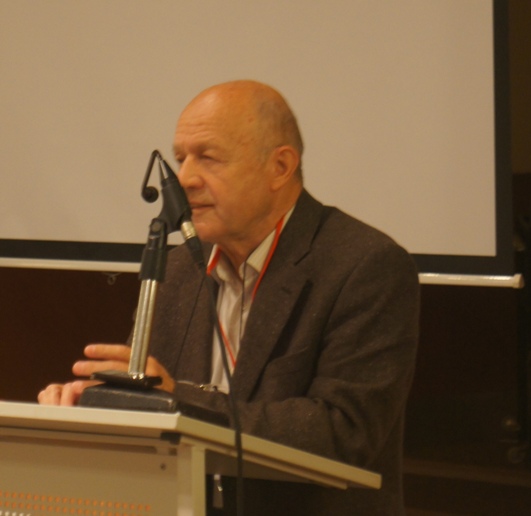 The meeting on the first day, which was attended by approximately 80 people, started with Anadolu Kültür director, Meltem Aslan, giving brief introductory remarks. Afterwards, Anadolu Kültür president Osman Kavala introduced the two keynote speakers. The first keynote remarks were given by writer and sociologist İsmail Beşikçi, who has written on the Kurds, the foundation of the Turkish Republic, and the one-party era. Aryeh Neier, founder of Human Rights Watch and president of the Open Society Institute, was the second keynote speaker. His comments explained the historical and political fundamentals of truth commissions. The first session started with a presentation by historian Madeleine Fullard, who worked for South Africa’s Truth and Reconciliation Commission (TRC). She provided insight on the shortcomings of the TRC concerning the ways in which it did not adequately confront the systematic elements of Apartheid. Afterwards, Hüsnü Öndül, former president of the Human Rights Association (IHD), made a speech on Turkey's human rights record over the last 30 years. He stated that, according to IHD’s findings, Turkey has improved its human rights record over the past 10 years. In the second session, Felix Reategui Carillo, a human rights expert from Peru who worked for its own Truth and Reconciliation Commission (TRC), gave a presentation on the Peruvian TRC and reparation programs. Secondly, former MP Fikri Sağlar spoke about Parliament's Susurluk Inquiry Commission. He underlined that the deficiency of democratic values in Turkish politics is an obstacle for seeking truth and justice. Şefika Gürbüz, former president of the Migration Association (Göç-Der), talked about a unique reparations program for the violations that occurred during the state of emergency in the primarily Kurdish regions of Turkey. According to Gürbüz, the law on reparations for internally displaced persons (IDPs) was passed because of ECHR decisions against Turkey. Gürbüz emphasised that the mentality of the law no. 5233 was designed to protect state interests rather than empower reparations for victims.
The meeting on the first day, which was attended by approximately 80 people, started with Anadolu Kültür director, Meltem Aslan, giving brief introductory remarks. Afterwards, Anadolu Kültür president Osman Kavala introduced the two keynote speakers. The first keynote remarks were given by writer and sociologist İsmail Beşikçi, who has written on the Kurds, the foundation of the Turkish Republic, and the one-party era. Aryeh Neier, founder of Human Rights Watch and president of the Open Society Institute, was the second keynote speaker. His comments explained the historical and political fundamentals of truth commissions. The first session started with a presentation by historian Madeleine Fullard, who worked for South Africa’s Truth and Reconciliation Commission (TRC). She provided insight on the shortcomings of the TRC concerning the ways in which it did not adequately confront the systematic elements of Apartheid. Afterwards, Hüsnü Öndül, former president of the Human Rights Association (IHD), made a speech on Turkey's human rights record over the last 30 years. He stated that, according to IHD’s findings, Turkey has improved its human rights record over the past 10 years. In the second session, Felix Reategui Carillo, a human rights expert from Peru who worked for its own Truth and Reconciliation Commission (TRC), gave a presentation on the Peruvian TRC and reparation programs. Secondly, former MP Fikri Sağlar spoke about Parliament's Susurluk Inquiry Commission. He underlined that the deficiency of democratic values in Turkish politics is an obstacle for seeking truth and justice. Şefika Gürbüz, former president of the Migration Association (Göç-Der), talked about a unique reparations program for the violations that occurred during the state of emergency in the primarily Kurdish regions of Turkey. According to Gürbüz, the law on reparations for internally displaced persons (IDPs) was passed because of ECHR decisions against Turkey. Gürbüz emphasised that the mentality of the law no. 5233 was designed to protect state interests rather than empower reparations for victims.
Second day
Approximately 60 participants attended the second day’s proceedings. The first session of the day started with a presentation by renowned human rights activist Nataša Kandić from Serbia. Kandić talked about the Regional Commission for Truth-seeking and Truth-telling About War Crimes (RECOM) campaign for a regional truth commission in the former Yugoslavia. Ten CSOs from the region, including Kandić's own Humanitarian Law Center, have started the initiative for RECOM. Lawyer Tahir Elçi from Diyarbakır talked about judgments, which are one of the most important methods for confronting the past. He discusses two important cases: “Temizöz et al.” and “Gendarmerie Intelligence and Fight against Terrorism” (JİTEM), which are trying atrocities that occurred in the 90s in primarily Kurdish cities. Elçi, as the lawyer of these cases, gave an explanation about the ongoing process.  The next session concerned the disclosure of social gender perspectives in truth commissions. Vasuki Nesiah, a professor at NYU, gave an informative presentation on truth commissions that address violations based on gender. She examined transitional justice mechanisms in three phases, with a particular focus on truth commissions. According to Nesiah, the third phase of transitional justice, occurring in the 2000s, is distinguished by its attempts to address gender-based crimes. Lawyer and human rights activist Eren Keskin gave a striking speech on the Turkish state's handling of gender-based crimes. She asserted that, to date, no police or army officials accused of gender-based crimes have been sentenced.
The next session concerned the disclosure of social gender perspectives in truth commissions. Vasuki Nesiah, a professor at NYU, gave an informative presentation on truth commissions that address violations based on gender. She examined transitional justice mechanisms in three phases, with a particular focus on truth commissions. According to Nesiah, the third phase of transitional justice, occurring in the 2000s, is distinguished by its attempts to address gender-based crimes. Lawyer and human rights activist Eren Keskin gave a striking speech on the Turkish state's handling of gender-based crimes. She asserted that, to date, no police or army officials accused of gender-based crimes have been sentenced.
Civil society demanding the truth
At the end of meeting, CSO representatives discussed the theoretical framework of a truth commission in Turkey. Some CSOs, including our organisation, have presented a draft declaration for demanding the foundation of this truth commission in Turkey. In general, the meeting received good feedbacks from participants, including MPs from opponent parties CHP and BDP, who claimed that this meeting was an important step and that CSOs should be working on these subjects. You can download the program, the participants' list and the bios of the speakers via the links.
